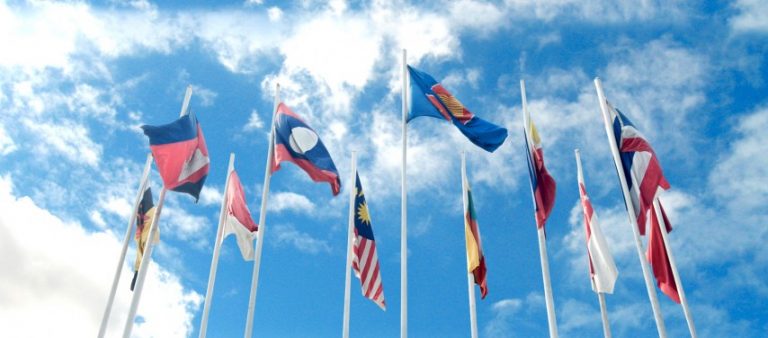1. The 9th Meeting of the Foreign Ministers of ASEAN and the People’s Republic of China, Japan and the Republic of Korea was held in Singapore on 22 July 2008. The Meeting was chaired by H.E. George Yeo, Minister for Foreign Affairs of the Republic of Singapore.
2. Recalling the Ministers’ decisions at the 40th ASEAN Ministerial Meeting and the 8th ASEAN Plus Three Foreign Ministers Meeting on 31 July 2007, in Manila, which recognised that relations among ASEAN Plus Three countries had reached a high level of comfort, the 9th ASEAN Plus Three Foreign Ministers Meeting in Singapore was held in retreat format for the first time, to facilitate a frank, open and interactive discussion.
3. The Ministers exchanged views on regional and international issues and welcomed recent developments that have contributed to regional peace and security in East Asia. They reiterated their support for the Six-Party Talks toward the verifiable denuclearisation of the Korean Peninsula and the eventual normalisation of relations between the relevant Six-Party members through the full implementation of the Joint Statement of 19 September 2005, including the resolution of outstanding issues of concern such as security and humanitarian concerns. In this regard, the Ministers emphasised the importance of the early establishment of an effective verification mechanism. The Ministers welcomed the upcoming first informal meeting of the Foreign Ministers of the Six-Party Talks on 23 July 2008 in Singapore.
4. The Ministers welcomed the Myanmar government’s decision to invite UNSG Special Advisor Professor Ibrahim Gambari to visit Myanmar again in August 2008, and noted that it was important for Professor Gambari to continue his work in helping Myanmar’s efforts towards national reconciliation. They expressed their support for the Secretary-General’s Good Offices mission and Professor Gambari’s visits to Myanmar. They called on the Myanmar authorities to extend their fullest cooperation to Professor Gambari by giving him access to the highest levels of the SPDC and the government, and by facilitating meetings for him with the widest possible range of other contacts, including Daw Aung San Suu Kyi.
5. The Ministers discussed developments in the Middle East, in particular the situation in Iraq, Afghanistan and Iran, and the continuing efforts in the Middle East Peace Process. The Ministers took note of the Ministerial Meeting of the New Asian African Strategic Partnership on Capacity-building for Palestine organized by Indonesia, and Japan’s Corridor of Peace and Prosperity in the Middle East.
6. The Ministers were briefed by both Cambodia and Thailand on the situation in the area around the Temple of Preah Vihear and noted this with concern. They urged both sides to exercise utmost restraint and resolve this issue amicably.
7. The Ministers discussed the growing challenges of rising oil and food prices, as well as climate change, which posed serious challenges to our peoples’ welfare and our countries’ continued economic development. They called for greater information sharing and collaboration among member countries.
8. The Ministers also expressed their concerns over the global financial situation. On enhancing regional financial stability, they welcomed the progress made at the ASEAN Plus Three Finance Ministers Meeting in Madrid. In particular, they looked forward to further progress in the multilateralisation of the Chiang Mai Initiative and the Asian Bond Markets Initiative.
9. The Ministers reviewed the implementation of the Second Joint Statement on East Asia Cooperation and the ASEAN Plus Three Cooperation Work Plan (2007 – 2017). They noted with satisfaction the progress made, and discussed priorities for the future direction of ASEAN Plus Three cooperation, which will continue to support ASEAN’s efforts to realise the ASEAN Community. They reaffirmed that the ASEAN Plus Three process would continue to be the main vehicle towards the long-term goal of building an East Asian community, with ASEAN as the driving force. At the same time, they recognised and supported the mutually reinforcing and complementary roles of the ASEAN Plus Three process and such regional fora as EAS, ARF, APEC and ASEM to promote East Asian community building.
10. They noted that ASEAN Plus Three cooperation had grown from strength to strength over the past 11 years to encompass 14 Ministerial processes covering cooperation in 20 fields. In this context, they took note of the many cooperation initiatives in areas such as disaster management, food and energy security, finance, ICT, free trade arrangements, health and youth.
11. ASEAN Ministers expressed their appreciation for the Plus Three countries’ contributions and support for the ASEAN-led mechanism on humanitarian assistance for the victims of Cyclone Nargis. The Ministers called for the enhancement of information sharing and collaboration among the national disaster relief focal points. Drawing from the lessons learnt from recent disasters, they directed officials to improve disaster relief coordination and management through training, capacity building and improved systems and procedures. The Ministers expressed their sympathy to Myanmar and China in view of the massive and tragic loss of life in the Cyclone Nargis and the Sichuan earthquake disasters.
12. The Ministers launched the ASEAN Plus Three Cooperation Fund with an initial contribution of USD 3 million. China, Japan and Korea would each contribute USD 900,000, and ASEAN would contribute USD 300,000. This would provide the needed resources to implement more projects as envisaged by the Second Joint Statement and the Work Plan.
13. The Ministers expressed their best wishes to China for a successful Olympic Games in Beijing.
14. The Ministers looked forward to their next meeting in Thailand in 2009.
